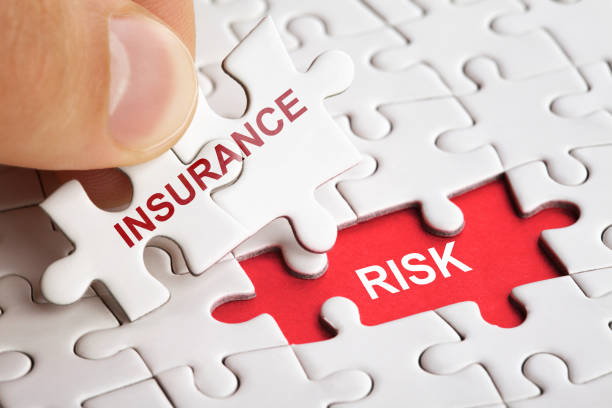
Commercial Insurance Policy Breakdown Guide
If you’re a business owner looking for protection, understanding your commercial insurance policy breakdown is the best place to start. Whether you’re opening a small coffee shop or running a large logistics firm, the right insurance can protect you from lawsuits, property damage, and employee injuries. In this guide, we’ll cover every major policy type, what to watch out for, and how to ensure your business stays protected — the smart way.
Table of Contents
- Introduction to Commercial Insurance
- Types of Commercial Insurance Policies
- Commercial Insurance Policy Breakdown
- Industry-Specific Insurance Needs
- Understanding Commercial Insurance Costs
- How to Compare Commercial Insurance Quotes
- Texas Requirements for Commercial Insurance
- FAQs About Commercial Insurance
- Final Thoughts on Choosing a Commercial Insurance Policy
Introduction to Commercial Insurance
Commercial insurance isn’t a luxury — it’s a necessity. Every business faces risks, even if you’re working out of a spare bedroom. Whether it’s a slip-and-fall accident, a data breach, or a delivery van collision, the right insurance policy keeps a bad situation from becoming a catastrophic one.
Because insurance regulations differ from state to state, it’s crucial to tailor your policy to local requirements. You don’t want to assume you’re covered, only to find out after a claim that you’re not.
Types of Commercial Insurance Policies
Not every business needs every type of policy. However, here are the essentials:
- General Liability Insurance – Covers third-party bodily injury, property damage, and legal fees.
- Commercial Property Insurance – Protects your buildings, equipment, and inventory from damage or theft.
- Workers’ Compensation Insurance – Pays medical expenses and lost wages for employees injured on the job.
- Commercial Auto Insurance – Essential if you own or lease company vehicles. Companies searching for auto insurance in McAllen, TX understand the importance of proper auto coverage.
- Professional Liability (Errors and Omissions) – Protects service providers against claims of negligence or mistakes.
Each of these types has unique features that matter depending on your industry and your exposure.
Commercial Insurance Policy Breakdown
Now, let’s get serious. A proper commercial insurance policy breakdown shows that your policy isn’t just one document — it’s a bundle of several moving parts:
- Declarations Page: Lists the insured, coverage amounts, deductible, and premium.
- Insuring Agreements: The insurer’s promise to pay under specific circumstances.
- Exclusions: These explain what’s not covered — and they are often buried deep in the fine print.
- Conditions: Requirements you must meet for the coverage to be valid, such as reporting claims promptly.
- Endorsements: Custom additions that tailor your policy further.
If you’re not careful, you might be assuming you have coverage that you don’t. Need help breaking down your current policy? Luna Services will walk you through it line by line.
Industry-Specific Insurance Needs
The industry you operate in dramatically impacts what coverage you’ll need. For instance:
- Restaurants need food spoilage coverage and liquor liability.
- Construction companies need builder’s risk and contractor’s equipment insurance.
- Retailers often require business interruption coverage on top of property insurance.
- Law firms must carry professional liability and cyber insurance for client data.
Companies offering employee benefits might also need group health plans in McAllen. Others, particularly those with leadership teams, often buy life insurance in McAllen to cover key personnel.
Understanding Commercial Insurance Costs
You might be wondering, “How much will this actually cost me?” Well, that depends on several important factors:
- Business Size: More employees or higher revenues generally equal higher premiums.
- Location: Areas with higher crime rates or natural disasters drive premiums up. If you’re seeking car insurance agents in McAllen, TX, you’ll see localized rates at work.
- Claims History: Past claims, even small ones, can raise your rates considerably.
- Industry: Risky industries like construction or medical services always pay more.
- Coverage Limits and Deductibles: Lower deductibles often mean higher premiums.
Want real data? The NAIC Insurance Cost Survey shows that small businesses spend anywhere from $500 to $5,000 annually depending on coverage and industry.
How to Compare Commercial Insurance Quotes
Shopping for quotes isn’t just about price. It’s about comparing value. Here’s how to do it right:
- Review Coverage Terms: Ensure policies actually cover the risks you face.
- Check Limits and Deductibles: Higher limits are worth the extra premium if they match your exposure.
- Analyze Exclusions: A cheap policy that excludes cyber risks is a bad deal if you handle customer data.
- Check Insurer Reputation: Claims service matters more than price when disaster strikes.
Rather than wading through confusing jargon yourself, work with local experts like Luna Services. They’ll compare and explain the real differences so you can make an informed choice.
Texas Requirements for Commercial Insurance
Texas is unique when it comes to insurance. Here’s what you need to know:
- Commercial Auto Insurance is mandatory for all business-owned vehicles.
- Workers’ Compensation is optional in Texas, but highly recommended — unless you’re under a government contract that requires it.
- General Liability Insurance isn’t required by law, but most commercial landlords require tenants to carry it.
- It’s worth noting that regulations often change. If you want to dive deeper, check the Texas Department of Insurance.
Need local coverage options like auto insurance in Mission, TX or advice from life insurance agents in McAllen? Luna’s team is plugged into the Texas market.
FAQs About Commercial Insurance
Q: Is general liability enough for my business?
A: It’s a good start, but if you have employees, vehicles, or valuable property, you’ll need more.
Q: What’s the most important section of a commercial insurance policy breakdown?
A: The exclusions section. This tells you exactly what isn’t covered.
Q: How often should I review my policies?
A: Annually, or whenever your operations change (new services, locations, hires).
Q: Can I bundle policies to save money?
A: Absolutely. Business Owner’s Policies (BOPs) combine general liability and property insurance at discounted rates.
Final Thoughts on Choosing a Commercial Insurance Policy
When it comes to your business, a thorough commercial insurance policy breakdown is your best line of defense. Insurance isn’t just a monthly bill — it’s a business survival tool. If you take shortcuts today, you might pay the price tomorrow when something goes wrong.
Choosing coverage isn’t just about checking a box. It’s about knowing your risks, understanding your options, and making sure that when life punches your business in the mouth — you’re still standing.
Need an expert to help you navigate all of this? Contact Luna Services today. Get clarity, covered, and peace of mind.

